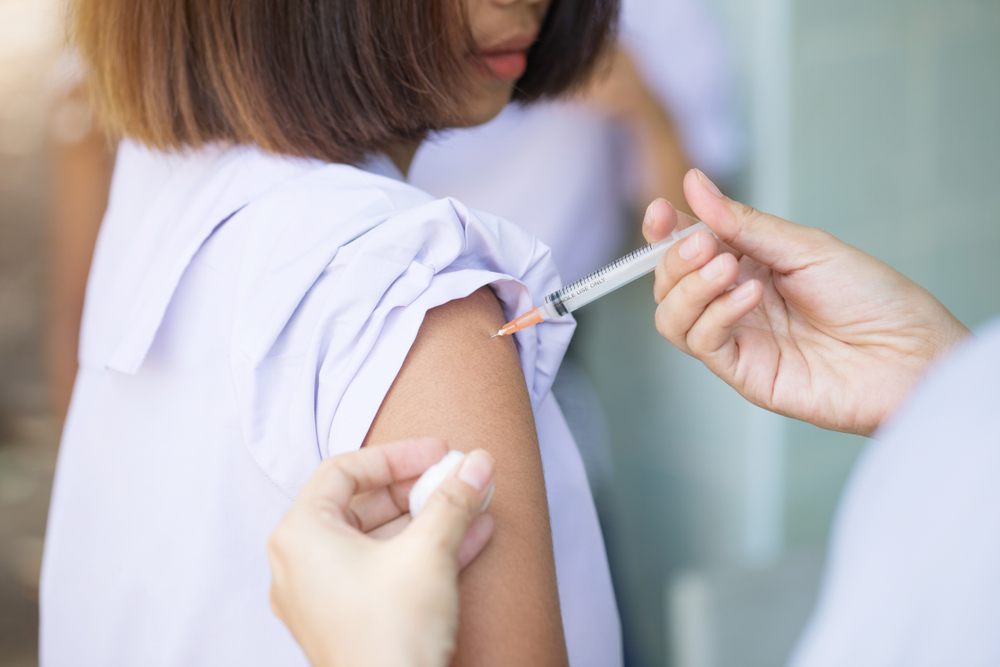Tetanus, a life-threatening disease caused by the bacterium Clostridium tetani, can strike anyone, anywhere.
With a particular focus on Asia, where tetanus remains a significant health concern, this article delves into the nature of the disease, its symptoms, and the importance of vaccination to prevent its potentially devastating consequences.
Tetanus: The Basics
Tetanus bacteria are commonly found in soil, dust, and animal faeces. They enter the body through open wounds, burns, or punctures, where they produce a potent toxin called tetanospasmin. This toxin targets the nervous system, causing severe muscle stiffness and spasms, which can be fatal if left untreated.
Signs and Symptoms: What to Watch Out For
The symptoms of tetanus typically develop between three and 21 days after exposure to the bacteria. Common signs include:
- Jaw stiffness or “lockjaw”
- Muscle stiffness, particularly in the neck and abdomen
- Painful muscle spasms
- Difficulty swallowing
- Fever and sweating
In severe cases, the muscle spasms can spread to other parts of the body, leading to breathing difficulties, abnormal heart rhythms, and even death.
Tetanus in Asia: A Persistent Problem
Although tetanus cases have declined worldwide, the disease remains a significant public health issue in Asia. In 2019, the World Health Organization (WHO) reported that over 25,000 cases of neonatal tetanus occurred in South-East Asia and the Western Pacific regions. Inadequate vaccination coverage, poor wound care, and unhygienic childbirth practices contribute to the persistence of tetanus in these areas.
The Lifesaving Tetanus Vaccine
The tetanus vaccine, often combined with vaccines for diphtheria and pertussis (Tdap or DTaP), is the most effective way to prevent this disease. The WHO recommends a primary series of three doses, usually administered in infancy, followed by booster shots throughout life. In Asia, efforts to increase vaccination coverage have significantly reduced the total number of cases. Between 2000 and 2019, the South-East Asia region achieved an 88% reduction in neonatal tetanus cases, thanks to vaccination campaigns.
Booster Shots: Stay Up to Date
Even after completing the primary vaccine series, periodic booster shots are necessary to maintain protection against tetanus. Thus, the WHO advises receiving a tetanus booster every 10 years for adults. Pregnant women should also receive a tetanus vaccine to protect their newborns from neonatal tetanus.
Wound Care: An Extra Layer of Protection
In addition to vaccination, proper wound care is crucial in preventing tetanus. If you sustain a cut, puncture, or burn, follow these steps:
- Clean the wound thoroughly with soap and water.
- Apply an antiseptic ointment.
- Keep the wound clean and dry, changing dressings as needed.
- Seek medical attention if the wound shows signs of infection, such as redness, swelling, or pus.
Conclusion: Vaccination – A Lifesaving Choice
This is a deadly disease, but it is also entirely preventable through vaccination and proper wound care. In Asia, increasing vaccination rates and raising awareness about the importance of wound hygiene are crucial steps in this fight. Therefore, stay protected by keeping your vaccine up to date, and always practice good wound care to minimise your risk.













